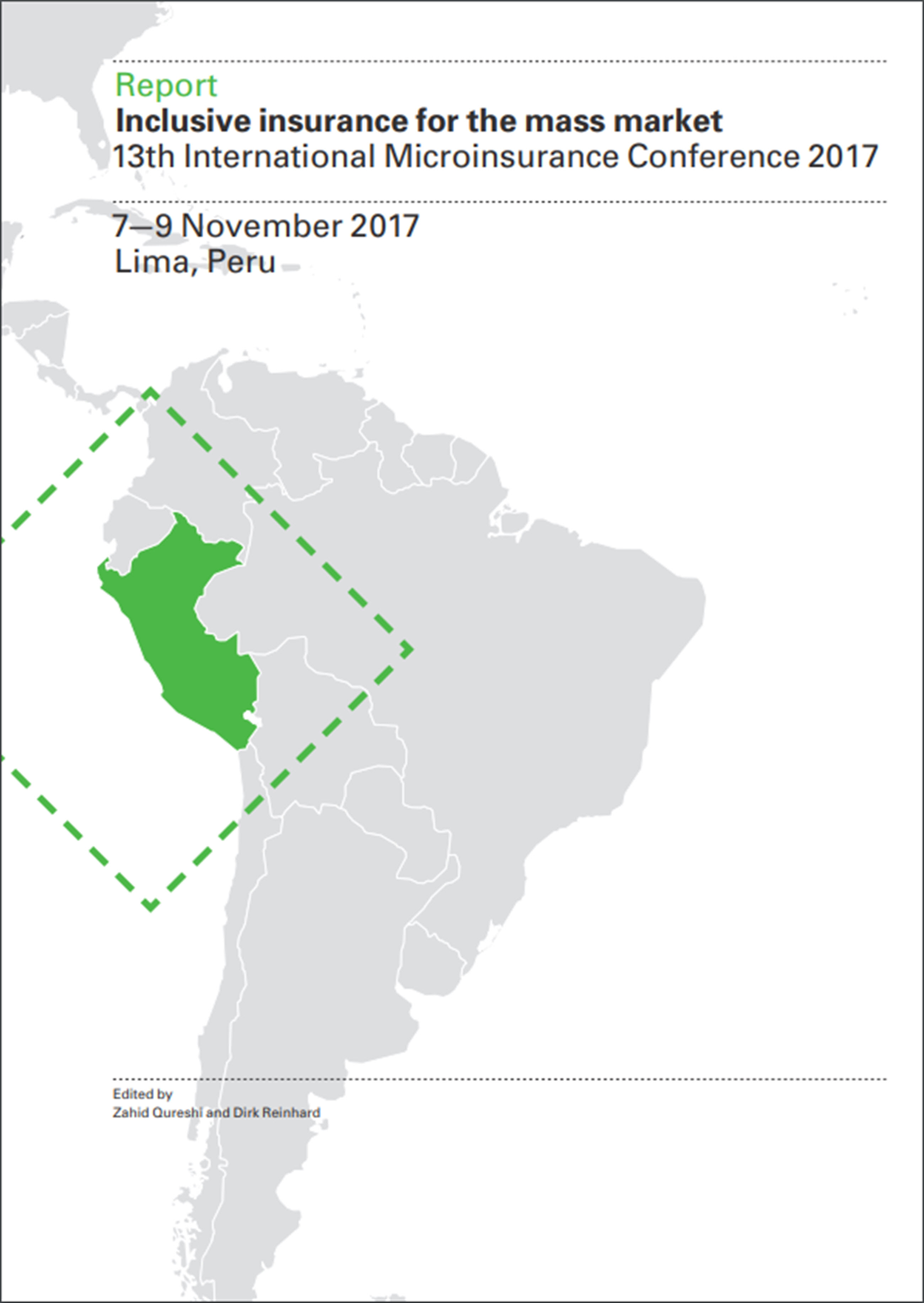
The future world of inclusive insurance – staying ahead of developments
13th International Microinsurance Conference, 7 - 9 November 2017, Lima, Peru
properties.trackTitle
properties.trackSubtitle
Today more than 8% of the population in Latin America and the Caribbean have some sort of microinsurance cover according to new findings from the “Microinsurance Landscape Study” published at the 13th International Microinsurance Conference. Nearly 5 million policies were found in Peru, which together with Brazil, Mexico and Nicaragua has seen the largest growth in Latin America in recent years. One of the main reasons for this development was increased government involvement.
The 2017 earthquakes, floods and hurricanes in Latin America, however, have shown that safety nets including insurances are still not strong enough. “Peru is at risk. Earthquakes, floods and drought, also phenomena such as El Niño cause trouble”, says Eduardo Moron, the president of the insurance Association in Peru (APESEG). “Whenever there is a risk there should be insurance for it”, he said at the opening of the conference. “We have to find a way to create insurance products that meet the peoples' needs. With this we can help build a more resilient economy.”
César Liendo, Vice Minister of Finance of Peru, reminded the conference participants that “despite economic growth, the middle class is still vulnerable. If a big shock occurs, people can easily fall back into poverty." Thomas Loster, chairman of the Munich Re Foundation stated that “it is key that we include the people at risk and do not miss any single stakeholder including the industry and the regulators.” Stefan Dercon, Professor at the University of Oxford and Chief Economist of DFID pointed out that different layers of protection should be combined. It must be quickly determined, who has the “risk ownership”. Also, it must be clear who covers which risks – and what is not covered. A coordinated, credible plan for post-disaster action must be agreed upon in advance. “A pre-disaster preparedness approach replacing a 'begging bowl' has positive impact on economic development”, explained Dercon. Economic research in Mexico has shown that funds schemes there resulted in a 2 to 4 % increase of post-disaster local economic activity.

The lack of available data and efficient tools remain a key constraint for insurance to become more inclusive. During the conference a number of cases were presented on how technology can help to improve the situation. These underlined the potential of modern IT solutions. Apps developed by IFMR in India, for example, reduced not only the costs of the product but also showed higher take-up of cattle insurance. Chatbots – interactive online communication systems based on artificial intelligence – facilitate first interactions with clients. MARSH developed these cost efficient tools which also improved customer experience. Further, the use of satellite data for agricultural insurance in Kenya has shown first very promising results. Another example discussed at the conference was mobile money and insurance. Today, worldwide over 500 million mobile money accounts exist. Insurance distributed via mobile phone by companies such as BIMA are one of the main drivers of growth especially in Africa and Asia. However, experts agreed that even with technology, humans are still needed to communicate with and educate the customer.

Government involvement and cooperation are key
Since technology will transform the way in which products will be designed and delivered, rules and regulations must be developed. “The changes we will be facing in only three years will be gigantic”, said Carlos Belloni, a renown strategic consultant in digital transformation. The former chief operating officer for Zurich Insurance in Latin America warned that “regulators must stay three steps ahead of development.” Therefore a strong governmental involvement is needed. “Climate change is aggravating the risk situation and risk protection against it will not be possible if we do not prepare the markets.” These are changing rapidly and regulation must identify trends in order to prepare them early enough. Appropriate balance between consumer protection and promoting the development of new products and markets is needed, too.
“High standards and fair practices in the business are important. Also innovations in internal processes will help to broaden inclusion in insurance”, said María del Socorro Heysen Zegarra, Superintendent of the Peruvian Regulatory body (SBS, Superintendenta de Banca, Seguros). Furthermore, an insurance culture must be created to expand outreach. This requires substantial efforts in improving basic financial education such as the education programs currently being rolled out by APESEG Peru. “We need to recognize and acknowledge that we have a long road ahead of us. But recent developments show that we are on track.”
About the conference
The 14th International Microinsurance Conference will take place in Lusaka, Zambia, from 6-8 November 2018, and will be hosted jointly with the Microinsurance Technical Advisory Group of Zambia (TAG) and the Microinsurance Network.
